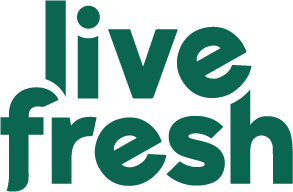Etwa 40% aller Deutschen beginnen das Jahr mit guten Vorsätzen: An erster Stelle steht das Aufgeben des Rauchens gefolgt von Gewichtsreduktion. Wir konzentrieren uns in diesem Blogbeitrag auf letzteres. Doch wie kannst Du diesen Vorsatz nachhaltig und gesund angehen?
Zunächst solltest Du Dein eigenes Warum und Dein Ziel definieren. Das Warum ist nämlich die treibende Kraft hinter Deiner Motivation, der Grund warum Du etwas tust oder eben nicht. Viele Menschen jagen Zielen hinterher, die ihnen von anderen vorgelebt werden, sie selbst aber gar nicht glücklich machen. Wenn Dein Warum also lautet „Damit andere mich nicht mehr zu dick empfinden“, reicht dies wahrscheinlich nicht für einen inneren Antrieb aus. Erforsche also, was Dich im Leben glücklich macht und suche genau hier Dein persönliches Warum. Eventuell ist es Deine Gesundheit, ein komplett neues Körper- und Lebensgefühl oder aber auch etwas ganz anderes. Nur wenn Du weißt, was Dich wirklich glücklich macht, kannst Du auch wissen, was Dich antreibt. Wichtig ist, dass Du dieses Warum klar definierst und Dir stets vor Augen hältst. Mehr darüber, wie Du Deine Ziele nicht nur motiviert angehst, sondern wie Du Ziele richtig setzen und langfristig erfolgreich umsetzen kannst, erfährst Du in unserem Blogbeitrag mehr als nur motiviert - wie Du Ziele setzen und erreichen kannst.
Wenn Du Dein Warum und Dein Ziel definiert hast, haben wir nun 8 Tipps, mit denen Du Deine Winterpfunde langfristig loswirst und Dich gleichzeitig gesünder und fitter fühlen wirst.
1. getting started
To initiate a healthy change in diet and lifestyle, a juice cleanse, where you only drink juices or juice shakes made from juice, vegan protein and high-quality linseed oil for a few days. After that, most people find it easier to listen to their feelings of hunger and satiety. You can choose between a classic juice cleanse or a full-fledged juice cleanse choose - start with a juice cleanse, get started and give your body a reset!
2. eat a diet higher in protein and lower in carbohydrates
Protein keeps you full, can boost your metabolism and can therefore help you lose weight. This is why protein-rich foods such as fish, meat, eggs, pulses and vegan protein-rich meat alternatives are so important for getting the body back into shape. The German Nutrition Society (DGE) recommends that adults consume 0.8 - 1 gram of protein per kilogram of body weight every day. The protein requirement is even higher for athletes. The diet should therefore include plenty of protein sources after winter at the latest. To achieve this, the proportion of carbohydrate-rich foods, such as pasta, bread, potatoes, rice and sugary foods, should be reduced.
The food cleanse is the ideal solution for sustainable weight loss and supports you in your holistic dietary change. The whole thing is based on low carb & high protein products, which are an absolute all-round carefree package for your maximum success. In the morning you eat a delicious porridge and drink a Happy Lemon juice. At lunchtime you have a drink and a snack. In the evening, you round off the day with a warm, delicious & super healthy meal and treat yourself to a Sunshine Berry shot. You can also enjoy another drinkable meal at any time. Well-fed and supplied with all the vitamins and minerals you need, you say goodbye to excess pounds and get a lot closer to your feel-good figure.
3. replace raw food with cooked vegetables in the winter months
Women in particular tend to reach for salads when they want to eat a more figure-conscious diet. However, especially in winter, the body needs warming and easily digestible foods to boost the metabolism. Light vegetable soups, for example, are better than just salads. So don't be afraid to prepare hot meals several times a day.
4. more movement in everyday life
It doesn't have to be top sporting achievements, it is often enough to integrate more movement into everyday life. Examples include taking the stairs instead of the elevator, cycling to work instead of driving or simply going for a walk in your free time and avoiding watching TV. You can find out more about this topic in our blog post Incorporating sport into everyday life - tips and exercises.
Many people also think that only endurance training is important for weight loss. However, this is not the case. Targeted strength training builds up muscles, which increase the body's overall calorie requirement and can continue to burn fat even during rest periods.
5. drink enough
You should drink at least 2 liters of water a day. A large glass of lukewarm water is particularly effective against cravings. You should mainly drink water and unsweetened tea.
6. pay attention to the feeling of hunger and satiety
Only eat when you are really hungry. You should eat slowly and in a relaxed manner, chewing 30 to 50 times. You should also eat consciously, i.e. not distracted by discussions, television or newspapers. This improves digestion, nutrient absorption and, above all, satiety. As already mentioned in tip 1, a juice cleanse can help you to (re)get to know your feelings of hunger and satiety and thus change your eating habits in the long term.
People who eat slowly usually consume fewer calories. This is because the pleasure is increased and you feel more satisfied and satiated after a meal. The brain needs some time before it signals that enough has been eaten.
Mindful and intuitive eating is a long-term and actually lifelong solution. It means learning to listen to your body's signals and only eating when you are hungry. To get full enough, you should focus mainly on nutritious foods that provide you with energy, nutrients and filling volume. Eating intuitively is the only way to lose weight in the long term and it is a slow and steady process.
7. take your time and don't put yourself under pressure
- Optimum composition of meals with sufficient protein,
- Slow weight loss without periods of hunger,
- long-term change in eating habits,
- Increase in physical exercise to build muscle.
Many diets do not take into account a sustainable change in habits and are only aimed at quick results. Thefood cleanse is an optimal support for you to lose weight sustainably, as you will be able to lose weight during the cleanse you are not starving and are optimally nourished. Of course, it's also important to stay on the ball afterwards! On our blog you will find suitable & delicious recipes for afterwards and you have the option of buying the healthy meals as a bundle. These can be perfectly integrated into your everyday life and are super quick to prepare. It is important that you avoid fast carbohydrates (sweets, white flour), as these are likely to cause cravings due to the rise in blood sugar. It is also important that you eat enough protein and high-quality fats.
8. reduce stress
Stress has an effect on your body composition as it interferes with your hormone balance. Short-term stress is not a problem. However, long-term stress that exhausts you and makes you feel stressed can cause major problems. This increases inflammatory factors, fat storage in the liver, acidification of the cells and muscle loss. It also disrupts the burning of sugar and leads to more hunger and cravings. You will therefore do yourself the most good if you reduce your stress levels and say "no" to new tasks or appointments. Also find out what relaxes you best and reduces your stress levels and incorporate more of this into your everyday life. This could be going for a walk during your lunch break or exercising in the evening, for example. Yoga is also a good option. There are many different variations, from calm to very vigorous. Our expert Lisa tells you in our blog postYoga for beginners - basic knowledge, tips & yoga exercisesthe most important information, tips and a first yoga session.
Das könnte dich auch interessieren









